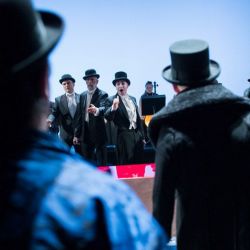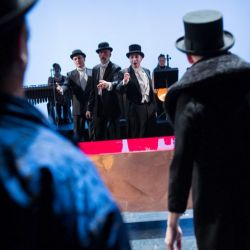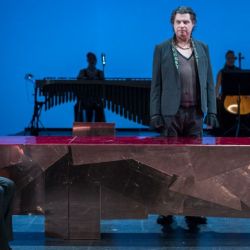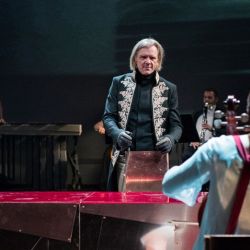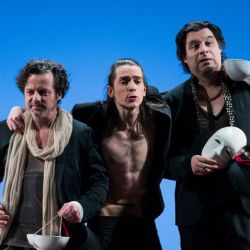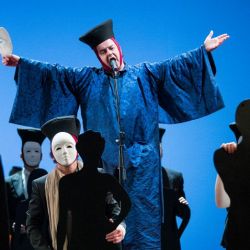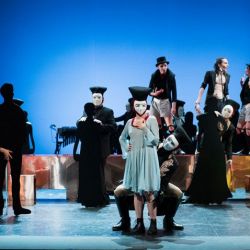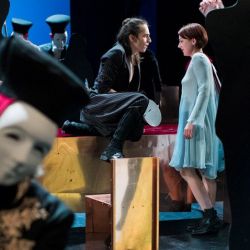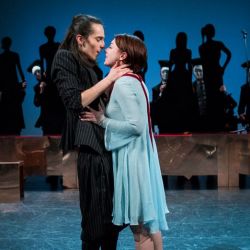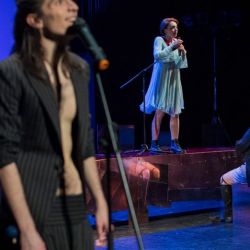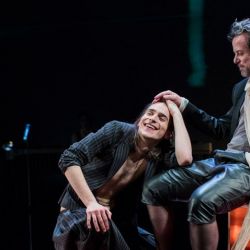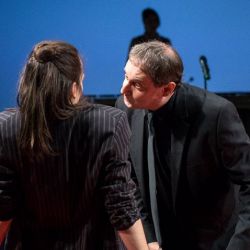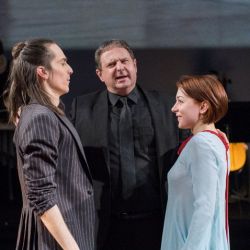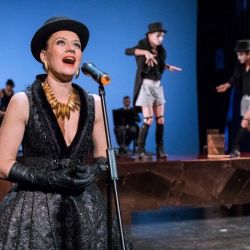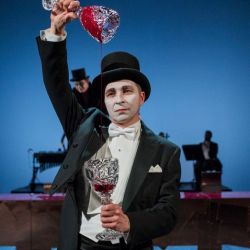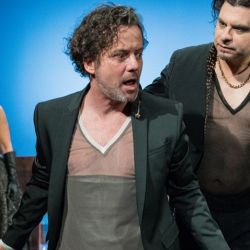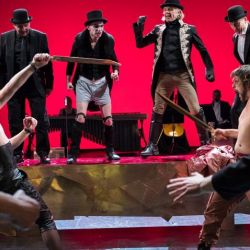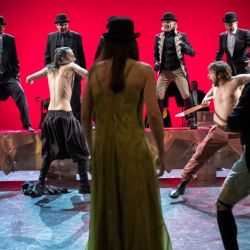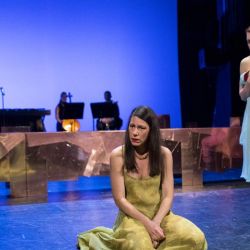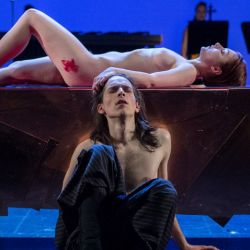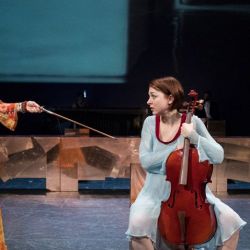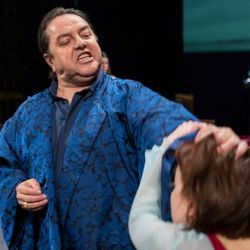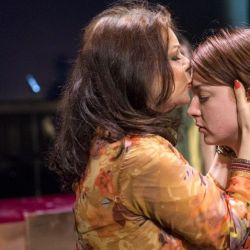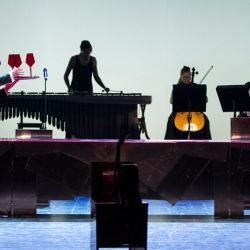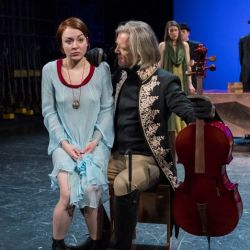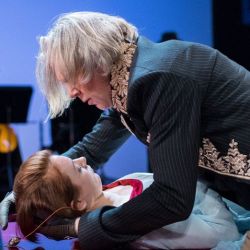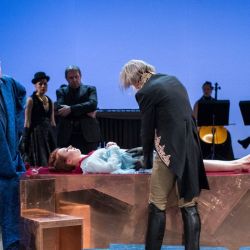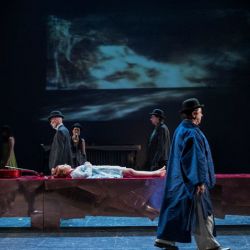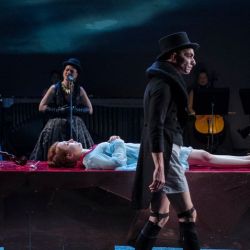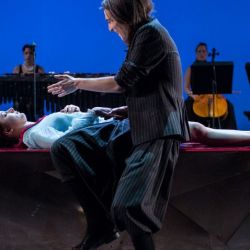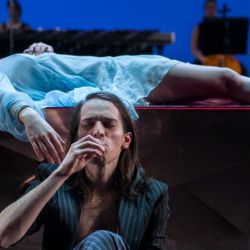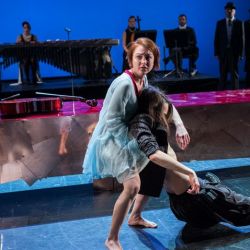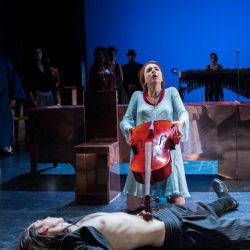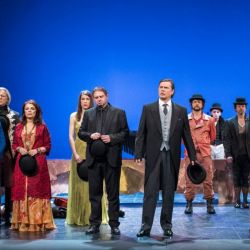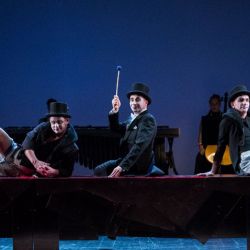William Shakespeare (1564-1616), a poet, playwright, theatre director and actor, born in Stratford-upon-Avon, was the son of John Shakespeare, an alderman and a successful glover, and Mary Arden, the daughter of an affluent landowning farmer. Although his parents could afford to pay for his education, he was more interested in acting profession and theatre. From 1568 to 1611 he lived in London, where he soon established his reputation as an actor, writer, and part-owner of various playing companies and famous theatres, such as the Globe Theatre and the Blackfriars. His creative output is usually divided into four periods: the early, "trial" period (1590 to 1593), during which he probably wrote plays with co-authors; the second period (1594 to 1600), during which he wrote dramas and comedies; the third period (1602 to 1608), during which he wrote his most important plays - tragedies and problem plays; and the final period, in which he wrote romances. His body of work comprises sonnets and epic-lyrical poems as well as thirty-six plays. It is the plays that make him one of the most important writers of all times. Sixteen of them were published during his lifetime, while the remaining twenty were published in 1623 by John Heminges and Henry Condell, members of the King’s Men, a company in which Shakespeare acted as well.
William Shakespeare’s oeuvre represents the culmination of the Elizabethan and Renaissance drama. His plays raise fundamental existential questions and pave the way to the subsequent development of theatre arts. His tragic heroes are victims of their own conflicting and opposing forces within themselves.
Romeo and Juliet is a tragic love story that inspired artists of all generations and various art disciplines. The story originated from Italy, and was written down by Arthur Brooke in 1562 as a poem called Tragicall Historye of Romeus and Juliet. In 1567, it was re-written in prose by William Painter, called Palace of Pleasure. Shakespeare drew from both versions, and wrote it in the form of a dramatic poem, expanding it and adding several supporting characters. The tragedy of Romeo and Juliet was written between 1591 and 1595, therefore it is possible he may have co-authored it with other playwrights.
Romeo and Juliet come from families divided by a lethal feud. Juliet is a Capulet, Romeo is a Montague. The Capulets organize a ball, which Romeo attends in disguise. Romeo and Juliet madly fall in love at first sight. Little do they know that they belong to rival families. During the same night Romeo clandestinely enters the garden of the Capulets, and Juliet promptly agrees to marry him secretly the next day. After their wedding night, the events ran a fatal course of action. The young lovers are ruined by their powerful and irresistible love, and by the irrational hatred of their families and the unhappy combination of circumstances and coincidences.
The tragedy of forbidden, impossible and overwhelming love is a story of hate and love, arrogance and intolerance, superiority and narrowmindedness, a story of poetry and violence. The lovers from feuding families desperately try to oppose the social fetters. They find happiness in their boundless love leading to a tragic ending. The greatest love story of all times is also a story of absurd hatred between two Verona feuding families, the Capulets and the Montagues, who impart their hate to the next generation. It is a story of meaningless and destructive forces of hatred which destroy a young love, and, ultimately, a story of reconciliation of rival families. This, however, occurs too late and cannot bring the young lovers back to life.
Translator Srečko Fišer
Director and Dramaturg Matjaž Zupančič
Set Designer Alen Ožbolt
Costume Designer Bjanka Adžić Ursulov
Composer Aldo Kumar
Movement Coach Tamás Tuza
Vocal Coach Simon Dvoršak
Lighting Designer Andrej Hajdinjak
Language Consultant Jože Volk
Assistant Director Nina Ramšak
Cast
Chorus Aljoša Koltak, David Čeh, Damjan M. Trbovc
Escalus, prince of Verona Mario Šelih
Mercutio, kinsman of Escalus, a friend of Romeo Vojko Belšak
County Paris, kinsman of Escalus Branko Završan
Lord Montague, patriarch of the house of Montague Rastko Krošl
Lady Montague, matriarch of the house of Montague Tanja Potočnik
Romeo, son of the Montagues Petja Labović
Benvolio, cousin and friend of Romeo Tarek Rashid
Balthasar, Romeo's personal servant Igor Sancin
Lord Capulet, patriarch of the house of Capulet Renato Jenček
Lady Capulet, matriarch of the house of Capulet Jagoda
Juliet, daughter of the Capulets Liza Marija Grašič
Tybalt, cousin of Juliet, nephew of lady Capulet Andrej Murenc
Nurse, Juliet's personal attendant and confidante Minca Lorenci
Friar Laurence, a Franciscan friar Igor Žužek
Friar John, a Franciscan friar Kristian Koželj (guest performance)
Musicians
Vocal Tanja Potočnik
Violoncello Tamara Gombač / Katarina Kozjek
Marimba Eva Zavšek / Petra Vidmar
Clarinet Gašper Salobir / Mitja Ritlop
Opening 17 February 2017
Performance duration: 2 hours and 25 minutes. One interval.


